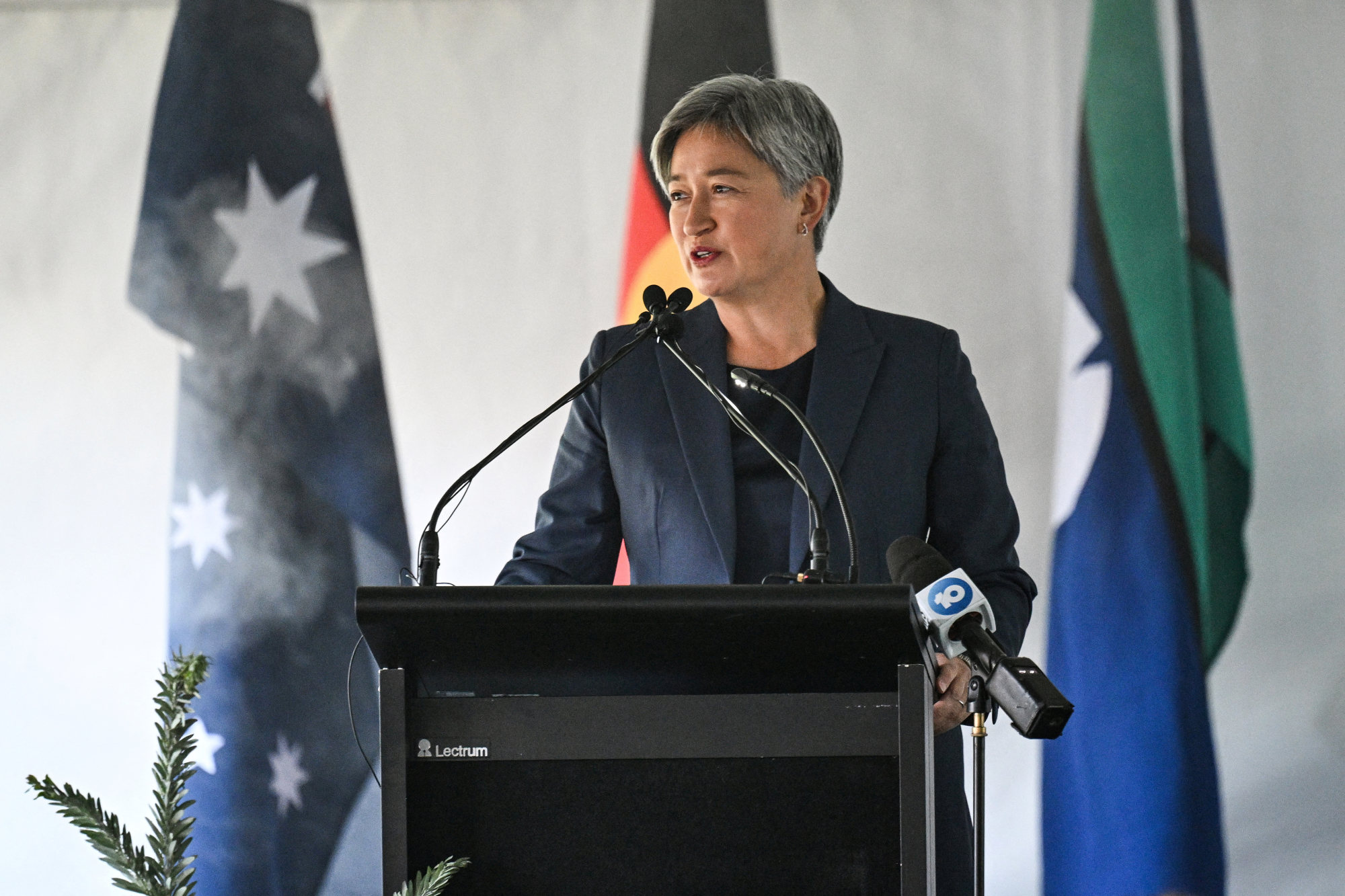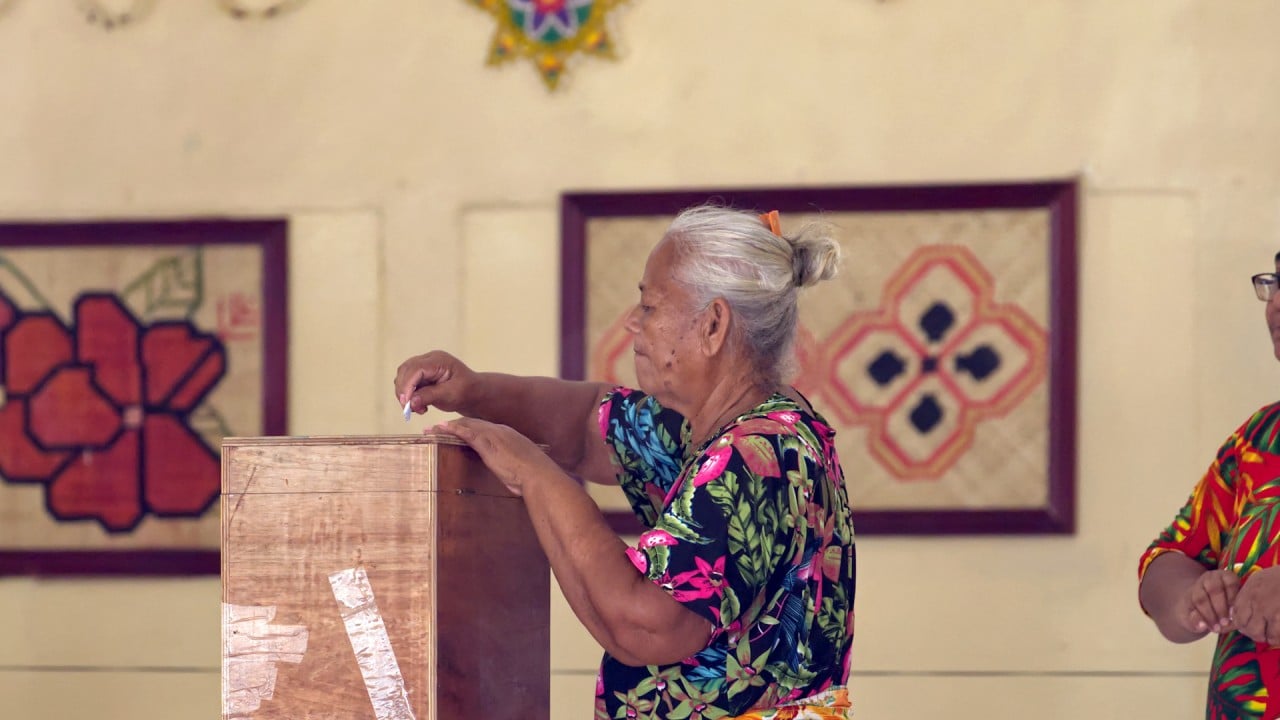Australia will quadruple its financial help to Tuvalu, a Pacific Island nation at risk from rising seas, to cement a landmark climate migration and security deal as China also courts small island states.
On a visit to Tuvalu, foreign minister Penny Wong said on Wednesday evening Australia has committed A$110 million (US$72.27 million) in its national budget to Tuvalu.
The sum includes A$50 million (US$32.85 million) to build the first undersea cable connecting the island’s residents to global telecommunications services, and A$19 million for a land reclamation project to fortify Tuvalu’s coastline from rising seas.
Another A$15 million will be spent on a national security coordination centre, as well as A$10 million in direct budget support.

The funding is a significant boost over the A$17 million (US$11.17 million) Australia provided to Tuvalu in 2023-24.
Mainland China’s ambitions for a greater security presence in the Pacific became an election issue in Tuvalu in January, as two leadership contenders said Tuvalu should consider switching ties from Taiwan to Beijing for more funds, and revise a new security pact with Australia. Neighbour Nauru cut ties with Taiwan a fortnight before Tuvalu’s vote, after mainland China built a port and promised more aid.
Tuvalu’s new prime minister Feleti Teo pledged to stick with Taiwan, and to ratify the Falepili Union signed with Australia in November. The treaty allows Tuvalu citizens to migrate to Australia for work or study, while recognising Tuvalu continues to exist despite the rising sea levels.
“Australia has provided a security guarantee to support Tuvalu in a humanitarian disaster, a pandemic or the event of attack,” Wong said in a speech on Wednesday evening.
“It is also the first time in history that two nations have agreed in a legally binding instrument that statehood endures in the face of sea level rise,” she added.
The treaty allows Australia to vet Tuvalu’s deals with third countries in a broad range of security areas, from ports to telecommunications.
On Thursday, Wong and Teo are expected to say that the security cooperation does not limit Tuvalu’s ability to enter into diplomatic agreements with other nations, according to an advance copy of a joint statement viewed by Reuters.
“We recognise that the people of Tuvalu deserve the choice to live, study and work elsewhere, as climate change impacts intensify at home,” the text of the statement reads.


